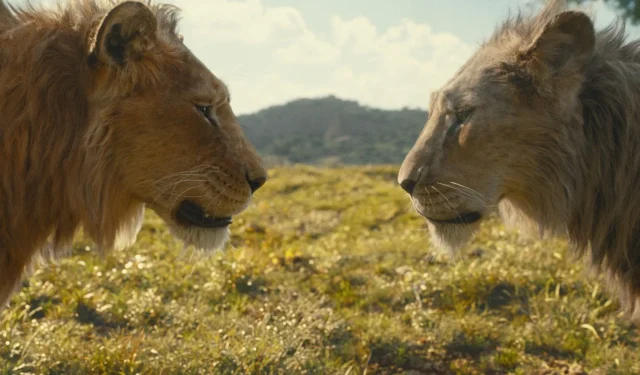
As Disney forges ahead with its trend of transforming renowned animated classics into live-action adaptations, the debate about their necessity intensifies. Nonetheless, the studio remains undeterred. One of the less favorable entries was the 2019 release of The Lion King, which featured an entirely animal cast. Directed by Jon Favreau, the film faced criticism for relying heavily on emotionless CGI characters, resulting in a product that barely resembled live-action. Despite its shortcomings, the movie proved to be financially successful, paving the way for a new project: the prequel/sequel Mufasa: The Lion King.
I must confess that I initially doubted the need for this film and feared it would reproduce the same flaws as its predecessor. However, I found solace in the decision to appoint Barry Jenkins—renowned for his award-winning film Moonlight—as director. His talent suggested that he could breathe new life into this narrative about animated creatures. After watching the film, I’m pleased to report that he succeeded in doing so.
Exploring the Origin of a Legend: Mufasa
A Tale with Depth
Mufasa: The Lion King is not without its imperfections, yet it establishes a compelling narrative that affirms its purpose. The story is narrated by the wise Rafiki (voiced by John Kani) to young princess Kiara (Blue Ivy Carter) as she anticipates her new sibling’s arrival. It delves into the origins of Mufasa, the iconic lion famously portrayed by the late James Earl Jones, commencing with a heartfelt tribute to the character that resonates throughout the film.
Initially a young cub (Braelyn Rankins), Mufasa faces a traumatic separation from his parents during a flash flood. Later, he is rescued from an alligator by Taka (Theo Somolu), a young prince who embraces him as a brother, despite their father’s aversion to outsiders. However, the film subtly foreshadows Taka’s transformation into the villainous Scar.
Screenwriter Jeff Nathanson masterfully integrates references to the fateful clash between Mufasa and Scar, although the effectiveness of these nods diminishes over time. A particularly striking moment occurs when Taka, initially attempting to save Mufasa, digs his claws into him, a scene that poignantly highlights their complex relationship.
As the story unfolds and Mufasa (voiced as an adult by Aaron Pierre) and Taka (Kelvin Harrison Jr.) mature, their bond deepens against the backdrop of impending danger. A ruthless invader, Kiros (menacingly portrayed by Mads Mikkelsen), forces the brothers into exile as they search for safety. The narrative also expands to include the backstories of Rafiki, Sarabi (Tiffany Boone), and Zazu (Preston Nyman).
High Expectations for Mufasa’s Leads
The Core of the Film: Mufasa and Taka’s Dynamic
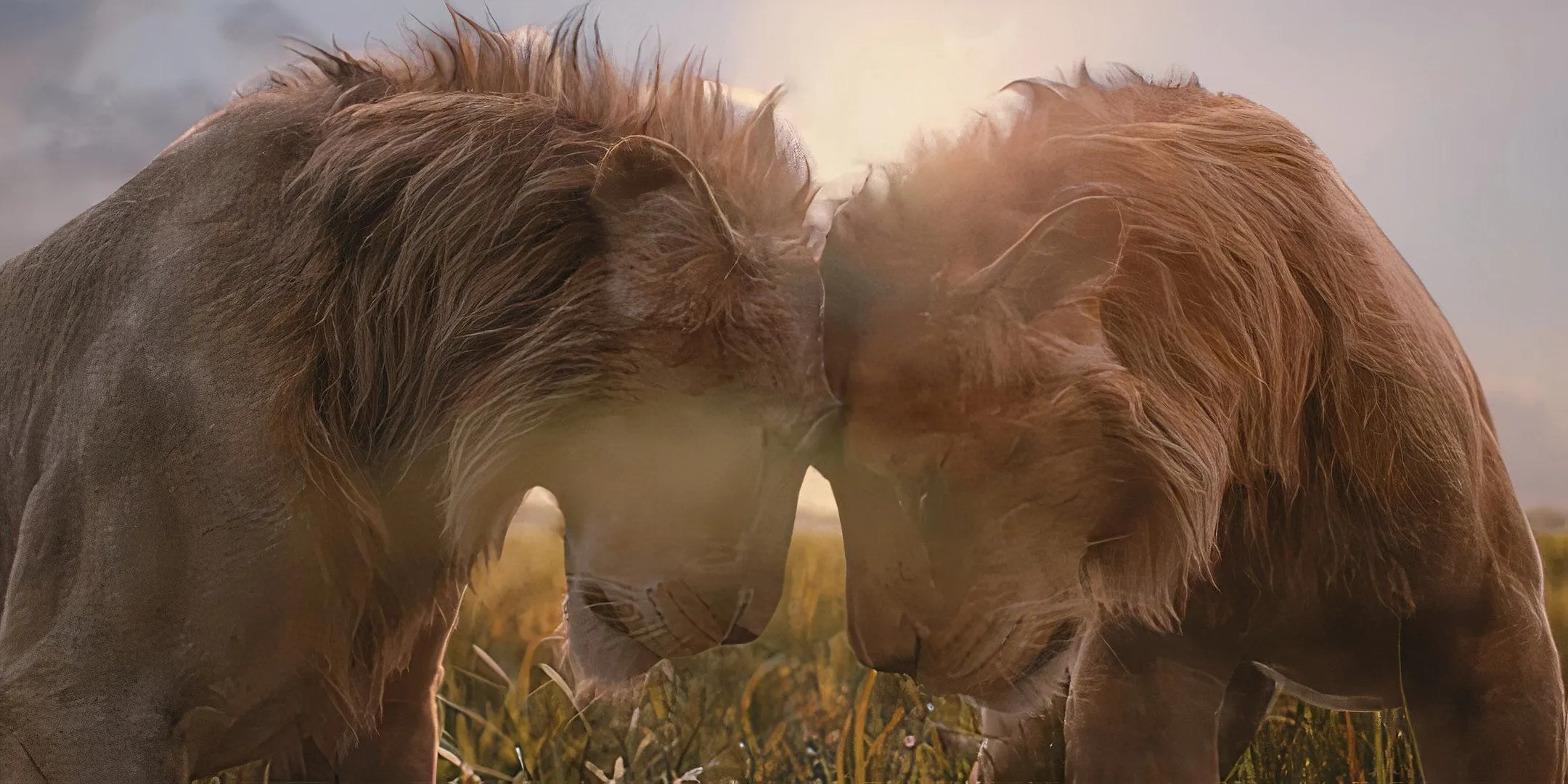
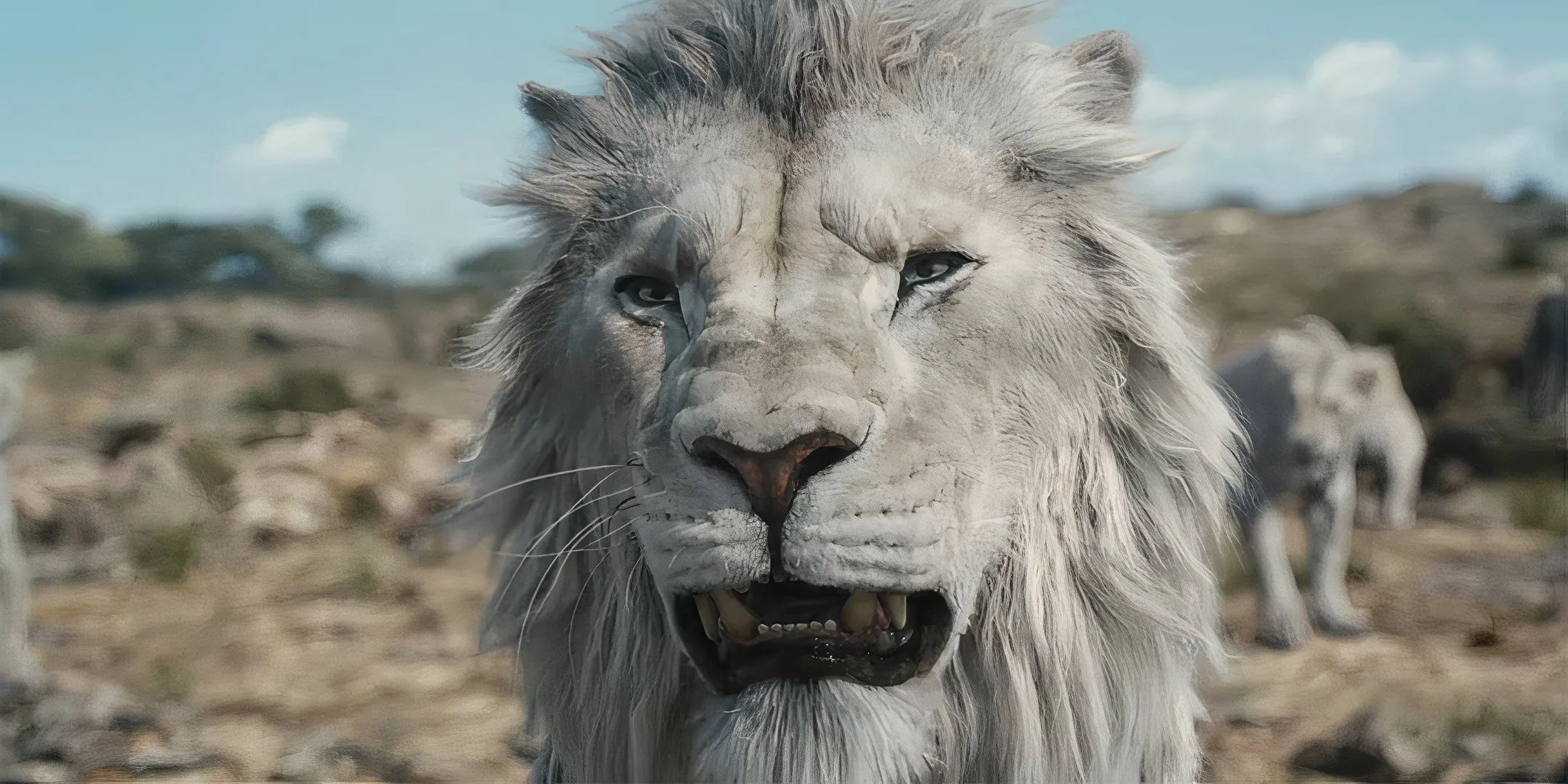
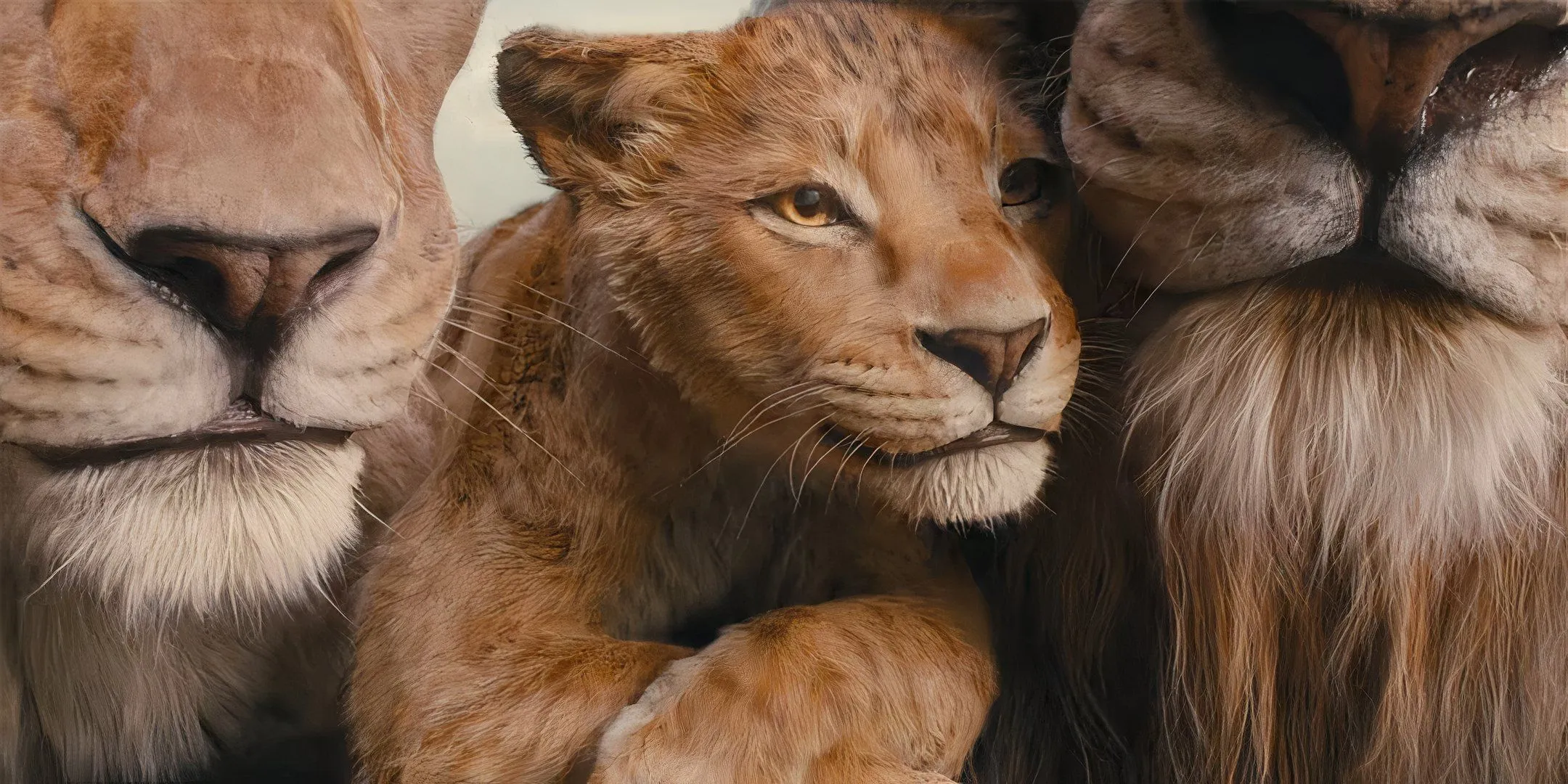
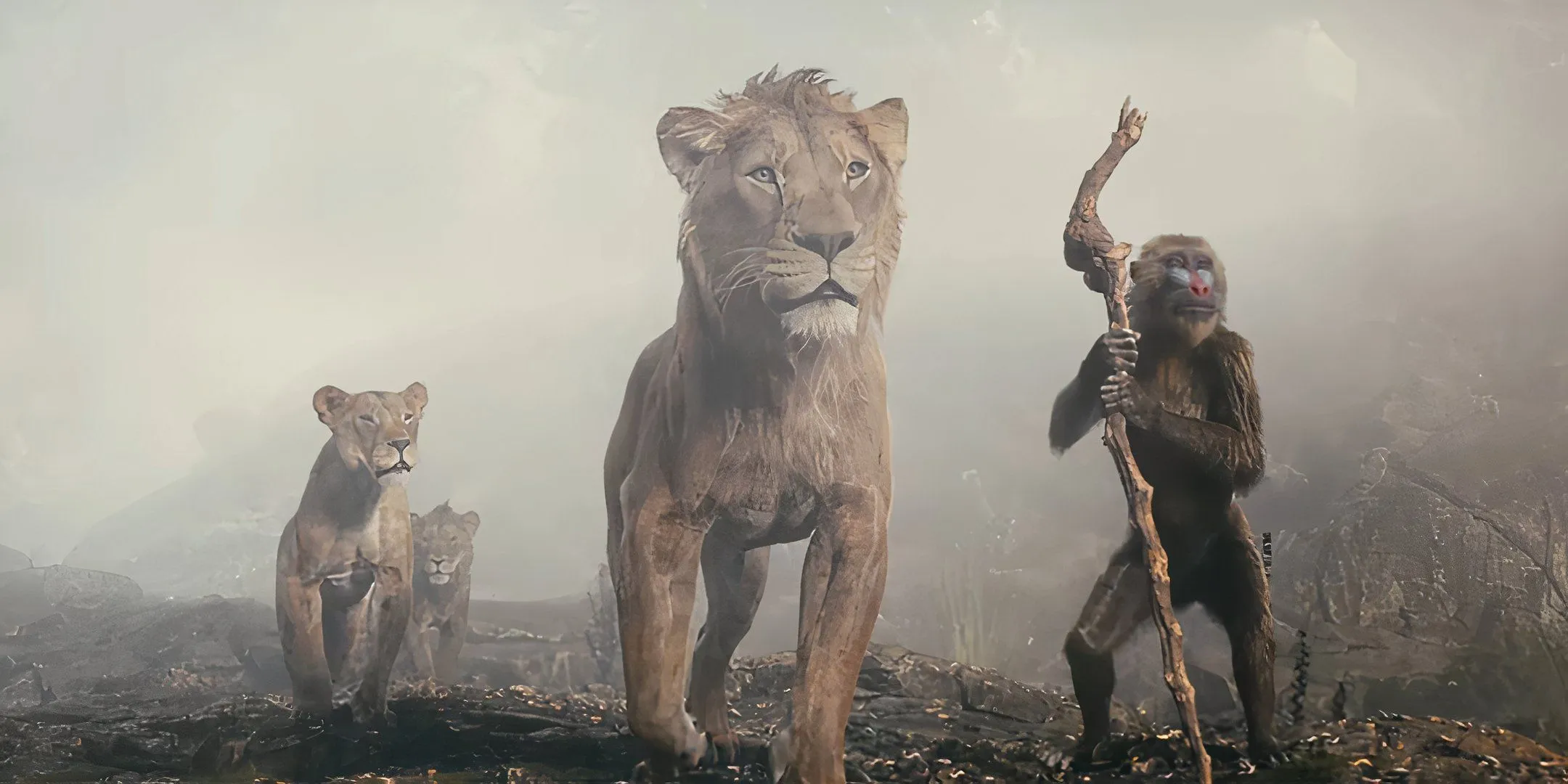
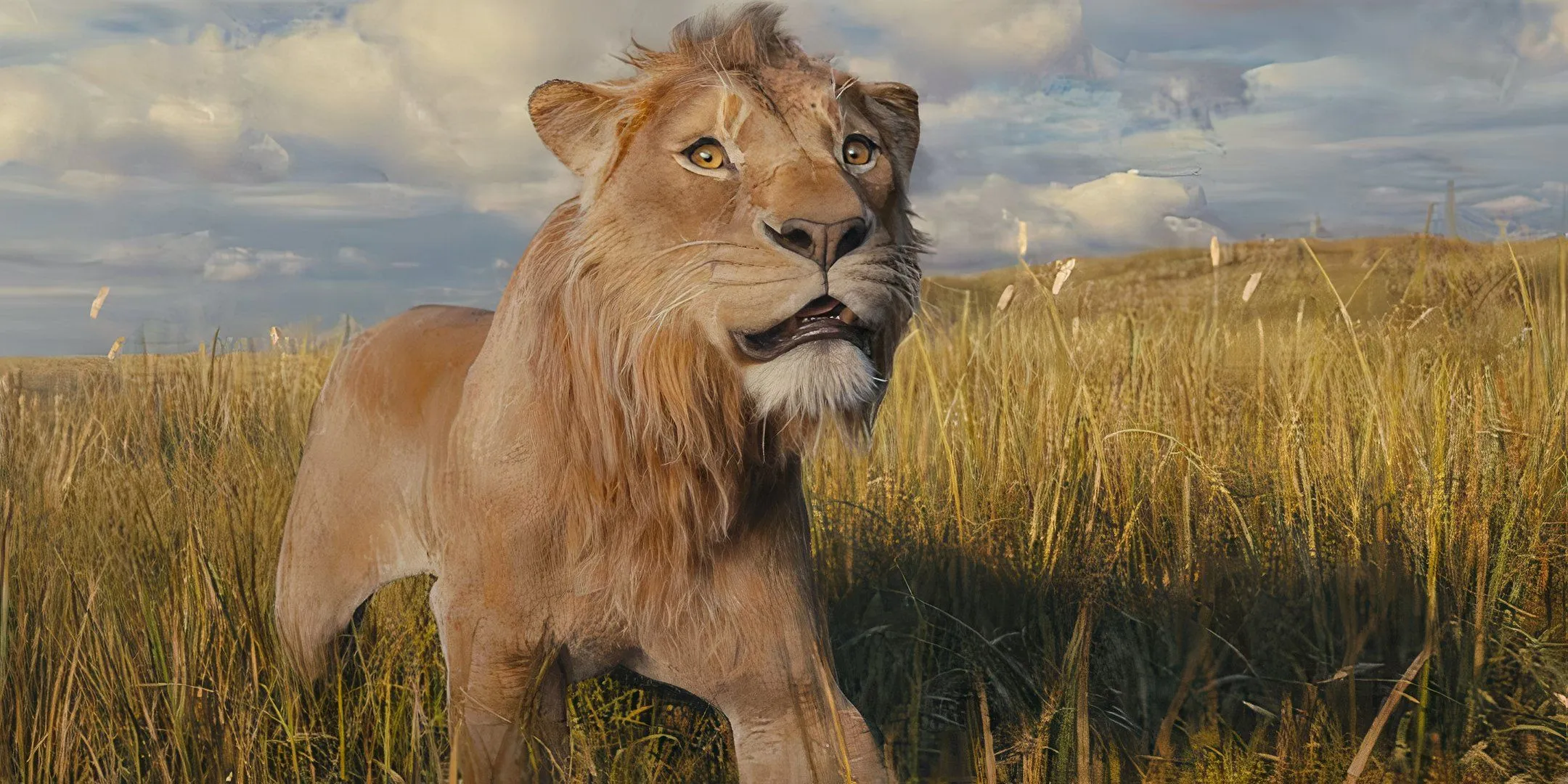
Throughout the film, it sometimes feels as if Mufasa hesitates to deviate too far from the familiar narrative and characters of The Lion King. This is particularly evident in the pronounced presence of Timon (Billy Eichner) and Pumbaa (Seth Rogen), who serve as comic relief while caring for Kiara. Although they inject humor into an otherwise somber story, their frequent meta-commentaries disrupt the flow of Rafiki’s heartfelt narration. The true strength of Mufasa lies in its exploration of the fraught relationship between the two brothers.
Taking on the iconic role made famous by Jones is a formidable task, but Pierre brings a youthful gravitas to Mufasa that resonates with the lion he is destined to become. His performance cleverly captures nuances of Jones’ original portrayal, adding depth to the character. Taka emerges as a complex figure, raising questions about his eventual betrayal of the brother he coveted.
The film’s resolution regarding Taka’s transformation into Scar is unsatisfyingly quick; however, Harrison’s performance during this pivotal shift is commendable, echoing previous portrayals while infusing his interpretation with a distinct flavor.
Visual Aesthetics Redefined in Mufasa
A Soundtrack on Par with a Classic
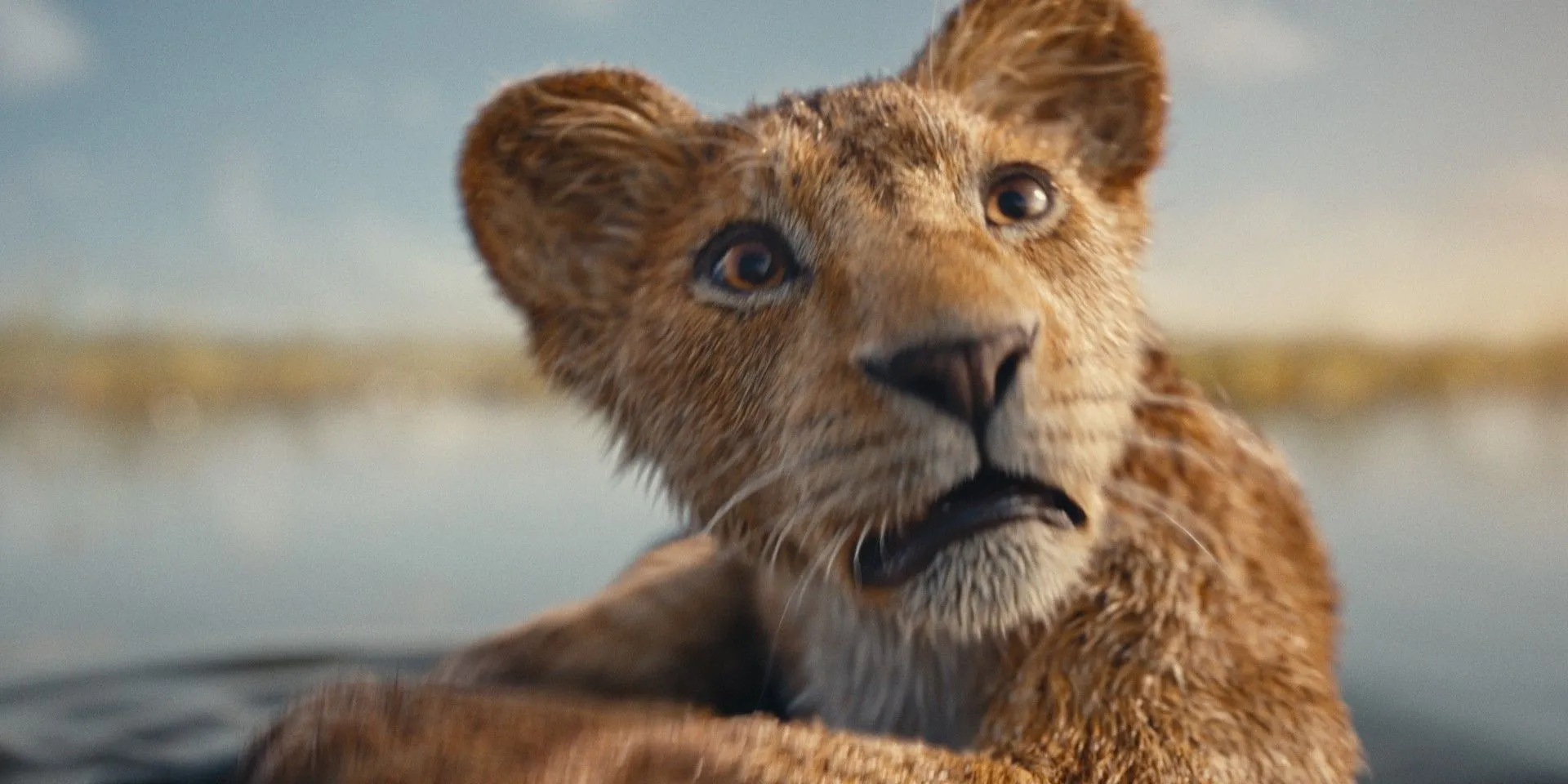
While the storyline and character development in Mufasa: The Lion King may stumble at times, the film’s stunning visuals and powerful soundtrack more than compensate. One of the main critiques regarding the 2019 The Lion King was its inability to capture genuine emotion due to the lifeless representation of characters. Under Jenkins’ guidance, the animation has considerably improved, infusing characters with personality and emotional depth.
The core of Mufasa’s tale showcases real emotional resonance, especially as it contemplates the legacy he leaves behind.
Although the original The Lion King soundtrack remains iconic, Mufasa‘s music comes close to its brilliance, thanks to the creative genius of Lin-Manuel Miranda, who, alongside franchise veteran Lebo M., contributes lively melodies and engaging lyrics. Miranda’s reinvigorating approach results in a soundtrack that authentically stands on its own.
Despite pondering how much more effective Mufasa: The Lion King might have been as a traditionally animated film, I appreciate the numerous aspects Jenkins executed successfully. At its core, the film resonates with genuine emotion, particularly in its reflection on how Mufasa’s legacy reverberates through time. While it strives to cover extensive ground—which includes brief cameos by Simba (Donald Glover) and Nala (Beyoncé Knowles-Carter)—the film ultimately finds its magic in focusing on its central character.
Mufasa: The Lion King arrives in theaters on December 20. With a runtime of 120 minutes, it is rated PG for action, violence, peril, and some thematic elements.




Leave a Reply